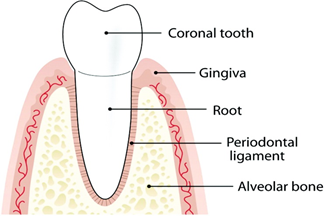牙齿保健
牙齿表面附着的牙石会直接影响您的牙龈牙周健康,长期不治疗可引发牙齿松动与脱落。我们团队有专业洁牙师为您提供定期的洁牙治疗,为您的口腔健康打下坚实的基础。
Prevention is better than cure
That’s why we offer the services of practitioners qualified to provide dental hygiene services. Deb Kriehn and Stacey Cronin are expert at removing the plaque and tartar that build up on your teeth. They use specialised instruments to provide individualised care for your teeth and gums.
Everyone is unique, and your teeth will build up tartar at a rate that may be different from others in your family. Deb and Stacey will advise you on the best way to minimise the damage, and schedule appointments to meet your needs.
Here are some of the services Deb and Stacey provide:
- An oral health assessment that includes your history and an evaluation of your gums and supporting structures of the teeth.
- Remove tartar, plaque and deposits from all tooth surfaces by scaling and polishing.
- Offer advice regarding prevention of oral disease, including oral cancer, gum disease and dental decay.
- Give instruction on plaque removal techniques, including brushing, flossing and use of interdental cleaning aids.
- Apply fluorides and sealants to decrease risk of decay.
- Give dietary advice relating to oral disease.
What is periodontal (gum) disease?
Periodontal disease is an inflammatory disease of the tissues which surround and support the teeth.

There are two main forms:
- gingivitis - which only affects the gum tissue surrounding the teeth, and
- periodontitis - which gradually destroys the ligament and bone surrounding the teeth (in advanced stages teeth can become loose or fall out)
If gingivitis remains untreated, it may progress to periodontitis.
How do you know if you have gum disease?
Because gum disease is usually painless, the most reliable way to find out if you have gum disease is to have an examination with the dentist or hygienist. But here are some warning signs:
- Red, swollen or tender gums that bleed when you brush or floss.
- Gums that recede or pull away from the tooth, exposing the roots.
- Teeth that have moved, creating spaces.
- Loose teeth.
- Persistent bad breath.
What causes gum disease?
The main cause of gum disease is bacterial plaque –the sticky, white film that forms on your teeth. If plaque isn’t removed over time it hardens to form tartar (calculus). Once tartar has formed it can only be removed by a dentist or hygienist.
Although plaque is the main cause of periodontal disease, other factors may increase your risk. For example, smokers and people with poorly controlled diabetes are much more likely to develop periodontitis.
How can gum disease be treated?
Gingivitis can be easily treated. This usually involves scaling (to remove tartar deposits) and polishing (to remove plaque deposits),and home care advice to improve brushing and flossing techniques for more effective plaque removal.
Treatment of periodontitis depends on the severity of the condition. Mild cases generally involve removal of tartar and plaque deposits by scaling and polishing, plus home care advice and support. In moderate to severe cases, referral to a periodontist (specialist in gum diseases) may be necessary to discuss a wider range of treatment options.











